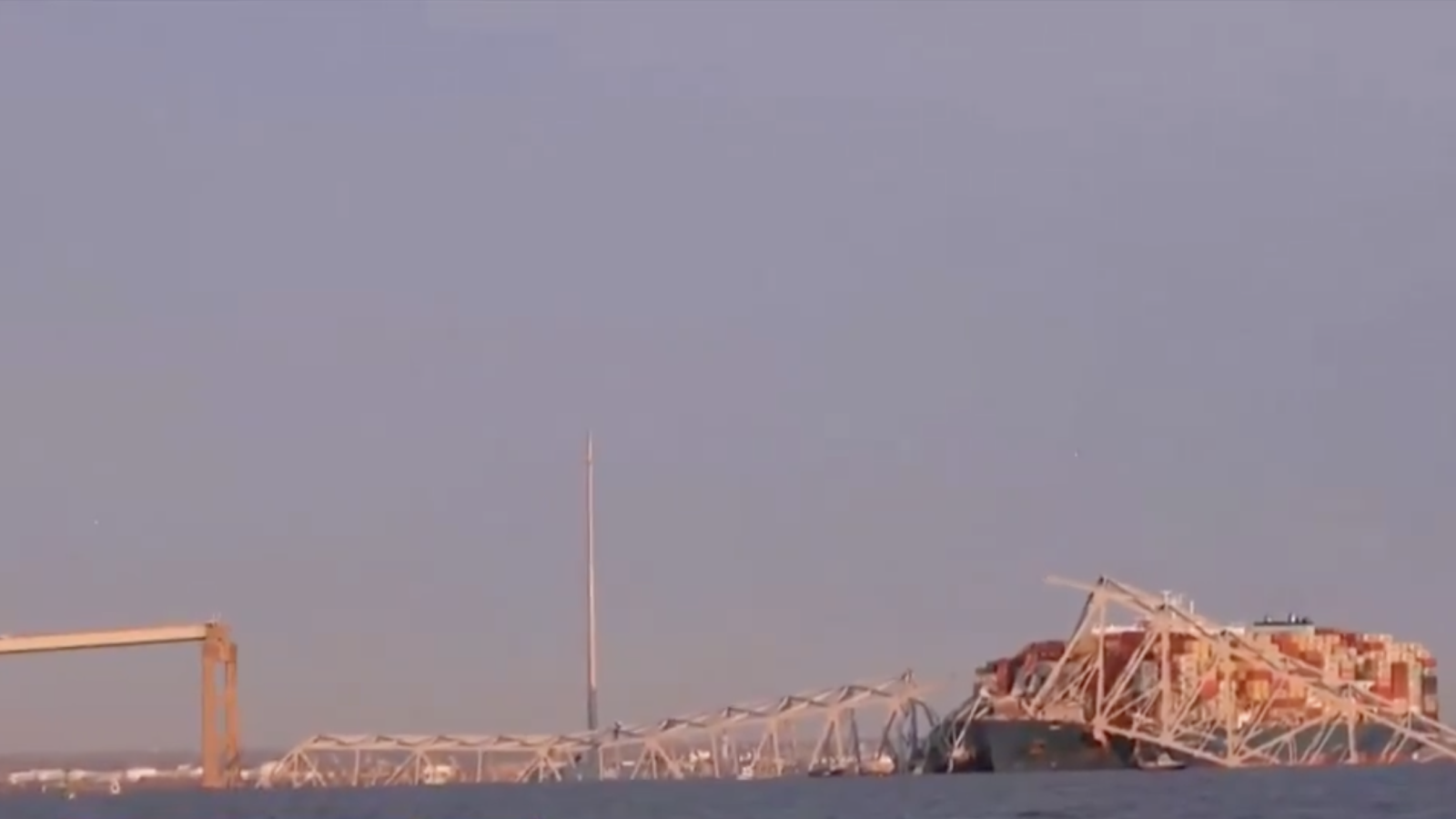We live in a deeply interconnected world—almost like a woven fabric where everything touches everything else.
Following the tragic collapse of the Francis Scott Key Bridge in Baltimore, the economic fallout is just beginning according to some economic experts.
Aside from $4 billion in initial insurance claims, an estimated $15 million per day in economic activity is expected to be lost due to the closure of the bridge.
In other words, the worst is yet to come, with the economic fallout expected to spread to other parts of the country and multiple sectors of the economy.
Reuters revealed: “Baltimore’s Francis Scott Key Bridge collapse could cost insurers billions of dollars in claims, analysts say, with one putting it at as much as $4 billion, which would make the tragedy a record shipping insurance loss.”
Baltimore's Francis Scott Key Bridge collapse could cost insurers billions of dollars in claims, analysts say, with one putting it at as much as $4 billion, which would make the tragedy a record shipping insurance loss https://t.co/cGwxDVnsDH pic.twitter.com/aY4XenAKo6
— Reuters (@Reuters) March 28, 2024
White House says ‘too soon’ to know cost and time frame for Baltimore bridge reconstruction https://t.co/ahY3NHufS0 https://t.co/ahY3NHufS0
— Washington Examiner (@dcexaminer) March 27, 2024
Breaking: Biden on Baltimore bridge collapse: 'Federal government will pay for entire cost' of reconstruction https://t.co/4o5zKUOQHG
— John Solomon (@jsolomonReports) March 26, 2024
Business Insider spoke to economist, policy expert, and CEO Anirban Basu, who told the outlet:
“It’s not just the Port of Baltimore that has been compromised,” Anirban Basu, an economist and the founder and CEO of the Baltimore-based Sage Policy Group.
It’s also the railroads, the trucking industry, the regional-distribution centers, commuters, and other segments of the economy.”
Plans to rebuild the bridge came under heave scrutiny, and one individual had a different idea about the restoration of the critical infrastructure:
“Maybe instead of building that new jail in Baltimore which would cost $1 billion and $100 million yearly to operate, that money can be used to build a new bridge, which would be a much better investment for the city.”
Maybe instead of building that new jail in Baltimore which would cost $1 billion and $100 million yearly to operate, that money can be used to build a new bridge, which would be a much better investment for the city.
— J.F.M. (@JustAFamilyMan_) March 26, 2024
Yellen expects insurance payments, not taxpayer dollars, to fund cost of new Baltimore bridge.
READ: https://t.co/1Ur3dWT6il#Yellen #Baltimore #Bridge #taxes #economy #JoeBiden #news #viral #explorepage pic.twitter.com/q98LT3hual
— Washington Examiner (@dcexaminer) March 27, 2024
🇺🇸Treasury Sec. Janet Yellen walks back Biden's declaration that taxpayers will cover the cost of a new Key Bridge in Baltimore:
"My expectation would be that ultimately there'll be insurance payments."
🇺🇸SGTnewsNetwork pic.twitter.com/ZbIos2M8dg
— dana (@dana916) March 28, 2024
Experts noted by Zero Hedge backed up Basu’s claims:
For the shipping community, the accident will affect maritime lanes as carriers must seek alternative ports of call while the collapsed bridge continues to block the river, experts said.
“Are any container vessels currently trapped in the bay? That is question No. 1,” Sanne Manders, president of international at Flexport, told FreightWaves.
“Right now, there are two vessels trapped: the ship that caused the collision and another general cargo container vessel that is currently trapped.”



Join the conversation!
Please share your thoughts about this article below. We value your opinions, and would love to see you add to the discussion!